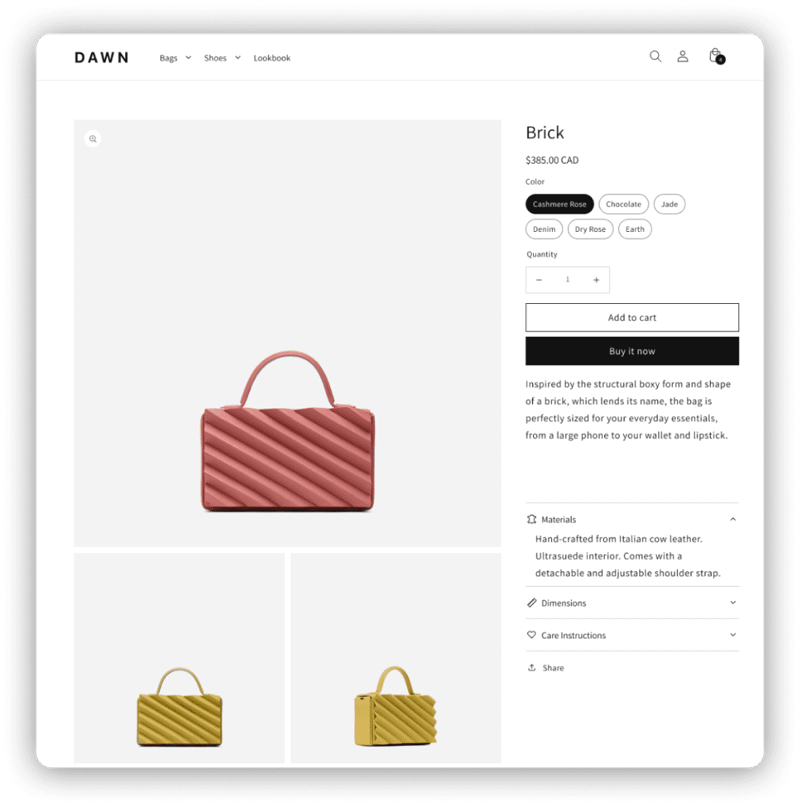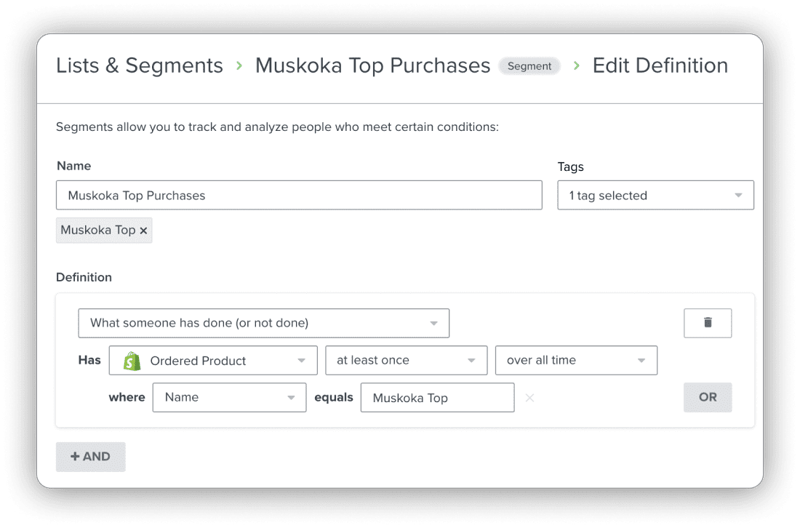Shopify vs Square: Everything You Need To Know

Table of Contents
PrShopify and Square are two industry-leading eCommerce platforms. If you're setting up an online store, you may be wondering which one is better for your business: Shopify vs. Square. There are many factors to consider.
First, what can Square and Shopify provide? Useful features, strong security systems, reasonable pricing plans, a wide variety of stores, and a user-friendly interface are a few factors that define a good eCommerce platform. Both platforms check these boxes in one way or another, so how can you tell which one is better?
Luckily, we've conducted a complete Shopify vs. Square comparison to help you weigh each important factor. So keep reading to figure out which eCommerce platform is the one for you.
Shopify vs. Square Overview
Here is the complete comparison of Shopify and Square, including their features, price, security, user-friendliness, variety of stores, payment options, POS software monthly fee, available sales channels, and customer support.
| Shopify | sQUARE | |
| Features | 70 + Themes Shopify POS Shopify Drop-Shipping Unique SEO tools Shopify Analytics Abandoned Cart Reminders |
Third-party integrations Square POS SEO management SSL security Multi-currency payments Customizable templates |
| Price | $9-$299 (per month, billed monthly) | $0 - $72 (per month, billed annually) |
| Security | Two- factor authentication Admin security Fraud protection GDPR compliance TLS certificate |
PCI compliance Secure payment data ISO 27001 certified |
| User-Friendliness | Good | Excellent |
| Variety of Stores | 1 million businesses globally | 2 million businesses globally |
| Payment Options | Shopify Payments, or connect a third-party processor for an additional fee | Must use Square Payments |
| POS Software Monthly Fee | $0 -$89 | $0 - $60; custom plans available |
| Available Sales Channels | Shopify site, add "buy" buttons to an existing site, Facebook, Instagram, Amazon, eBay, Walmart, mobile POS, in-store | Square Online store, payment links, add checkout to an existing site, Facebook, Instagram, mobile POS, in-store, local delivery |
| Customer Support | 24/7 phone support, community forum, help center, and resource library | Monday- Friday phone support, 24/7 automated chat support, seller community, and resource library |
Which Is Better for Your Small Business: Shopify vs. Square?
Here is an overview of both services, Shopify and Square, as platform choices for eCommerce businesses. We've included a few pros and cons to make the decision easier for you.
Shopify as a Platform Choice
Shopify is typically the first choice for online businesses, since it offers a robust web builder, sales tools, and inventory management functions. In short, this platform is a complete eCommerce solution.
Its interface holds all the features a seller needs to set up an online store and start selling their products. In addition, there are various options for sellers to organize their products, customize their storefront, accept credit card payments, track and respond to orders, and perform other related operations.
Shopify is used for their easy-to-use and easy-to-navigate platform that helps you build the ideal web presence for your store. In addition to online sales, Shopify POS allows sellers to sell in person without starting anew.
Shopify is a centralized platform for you to manage multiple sales channels, whether you're targeting mobile users, social media users, or the local community. This way, you have the freedom to explore the freedom of your business and see what works best.
The best part is that Shopify allows you to optimize it and increase its functionality with the help of the hundreds of apps available on the Shopify App Store. The purpose of these apps ranges from purely aesthetic to security improvement.

Pros
Here are a few advantages of a Shopify store:
- Scalable platform
- Access to hundreds of additional features and integrations via the Shopify App Store
- Print discounted postage straight from Shopify
- Strong POS system
- 24/7 customer service
- Ideal for larger retailers and online merchants
Cons
Here are a few disadvantages of a Shopify store:
- The shipping calculator requires an annual plan
- Shopify website themes are not that customizable
- No low-stock alerts without an upgrade
Square as a Platform Choice
Square is a better option for small brick-and-mortar businesses that also operate online; its free plan and POS system are ideal for this purpose. Although Square deals with all industries, it offers specific solutions for restaurants and appointment-based businesses.
The software has a user-friendly interface that accommodates various add-ons to improve the functionality of the eCommerce platform. Overall, it's an ideal option for most storefronts that don't need the most robust eCommerce functions.
Square's POS app allows sellers to manage their store's finances, staffing, and customer base all within one platform. In addition, you can ensure a faster checkout by expediting the sales pipelines with the help of Square's automation possibilities.
The software's ease of use makes it convenient for you and your employees and customers. For example, accepting orders has never been easier; just tap the item and add any extras, and you're ready to receive the payment. You'll even find a tip window that pops up during checkout, allowing your customers to tip however they like.
Square even helps you keep track of regular customers and their orders in the Customer Directory. This way, you can store their card details (with permission) for quicker checkouts, display pop-ups of their previous orders, and offer any discounts or sales. Lastly, you can view all these metrics at one glance on the Square Dashboard.

Pros
Here are a few advantages of a Square store:
- No monthly fees for standard plans
- All-in-one eCommerce and payment processing solution
- Great mPOS system
- Easy-to-use interface
- Lots of integrations
Cons
Here are a few disadvantages of a Square store:
- No advanced inventory management features
- Less built-in eCommerce functionality
- Shipping tools available only in higher-tier plans
Shopify vs. Square Comparison for eCommerce Business
Here is a detailed comparison of Shopify and Square for eCommerce businesses, including their features, pricing, security measures, user-friendliness, and variety of stores.
Features
The availability of features appeals to eCommerce sellers and buyers more than anything else. Does the platform offer a POS system? Does it offer additional features to simplify customer relationship management and expedite the sales pipeline? Let's compare the features of Shopify and Square.
Shopify wins by a long shot when it comes to features, as the platform does more to ensure functionality for both the buyer and the seller.
Shopify
Here are a few features Shopify is known for:
- 70+ store themes created by expert designers
- Abandoned cart reminders to bring back potential customers
- Shopify POS to integrate your business into the real world
- Shopify drop-shipping to deliver directly to your customers
- Unique SEO tools to rank higher on search engines
- Shopify Analytics to gauge your store's performance
Square
Here are a few features Square is known for:
- Tons of store themes created by expert designers
- Abandoned cart reminders to bring back potential customers
- Square POS to integrate your business into the real world
- Social media integration to market efficiently
- Text alerts for order status
Price
As an online merchant, one of the first things to consider in an eCommerce platform is its pricing plan. Does it offer competitively low rates, or does it go above and beyond the standard market rates? Does it charge fees for standard plans? Let's compare Shopify and Square pricing plans.
It's important to note that Square charges annually instead of monthly, so sellers don't have to put aside a certain amount each month, but they do have to plan for that larger expense once a year.
Shopify
Shopify's pricing plans range from $9 to $299. That may sound expensive, but it's pretty reasonable for the features offered by the platform. In addition, it comes with a 14-day free trial, allowing you to test its functionality without committing.
However, it does not have a free plan for those looking to use only the most basic options of the software. Shopify Basic costs $29 a month, with a fee of 2.9% + 30 cents on every transaction.
One tier up, the Shopify Standard plan costs $79 a month, with a fee of 2.6% + 30 cents on every transaction. Advanced Shopify costs $299 a month, with a fee of 2.4% + 30 cents on every transaction.
Finally, Shopify Plus costs $2,000 per month, and Shopify Lite costs $9.
If you pay for Shopify annually, you save 10%, and if you pay for it every two years, you save 20% off the amount you'd pay monthly.
Square
Square’s pricing plans are more affordable. It has a free plan with a fee of 2.9% + 30 cents on every transaction. It also offers a $16 Professional plan with a fee of 2.9% fee + 30 cents on every transaction. In the next-highest tier, it offers a $29 Performance plan with a fee of 2.9% fee + 30 cents on every transaction.
Lastly, Square offers a $79 Premium Plan with a fee of 2.6% + 30 cents on every transaction.
If you pay for Square annually, you save $4 on the Professional plan, $3 on the Performance plan, and $7 on the Premium plan.
Security
A reliable security system offered by the platform is important not only for you but also for your customers, allowing you to build customer trust and increase sales. Does the platform offer two-factor authentication? Is it compliant with data privacy laws? Let's compare Shopify and Square security measures.
Shopify seems to be more secure than Square regarding data privacy, mainly because of the integration possibilities for security improvement apps.
Shopify
Shopify is compliant with the European Union's General Data Protection Regulation (GDPR), imposing obligations on platforms that control and collect data. In addition, when you buy a new domain on Shopify, a TLS certificate is issued to you automatically, which improves network security between the client and the server for a reliable connection during the transmission of encrypted messages.
In addition, the website collects basic information provided by merchants, such as the name, billing address, shipping address, phone number, email address, and payment information.
Every store on Shopify has access to the default SSL certificates, which enable you to receive threat-free traffic. This traffic is typically directed through HTTP, but Shopify ensures that it's directed through HTTPS for unshakeable security.
Square
Square is fully compliant with the Payment Card Industry Data Security Standard (PCI DSS.) Plus, it provides built-in Secure Sockets Layer (SSL) security to encrypt all traffic passing from your customers to your store.
In addition, the software offers fraud analysis to ensure your customers aren't scamming you. This analysis includes indicators, support for third-party fraud apps, and fraud recommendations.
It's worth noting that all payment data on Square is highly secure, and the platform is ISO 27001 certified.
User-Friendliness
Other than being reliable and secure, an eCommerce platform also needs to be easy to use and navigate and pleasing to the eyes. Does it offer automation to optimize the customer onboarding process? Let's compare the user-friendliness of Shopify and Square.
In this case, Square is the winner, as it provides a smooth and easy-to-use editor. In addition, the interface is made with both beginners and veterans in mind, expediting the customer and seller onboarding process.
Shopify
Shopify is pretty simple and straightforward to use, but it leaves most of the onboarding process to you. The software asks a few questions to get you started and provides you with a checklist to start building your store, but that's pretty much it. 
Square
Square is incredibly easy to set up; it asks for your business' name and address, showing you a demo store first. Then, you can customize the logo and theme of your store to match your brand aesthetics.
Variety of Stores
If there are only a few other stores available on the platform aside from yours, customers will have a hard time relying on your store for credibility. That's why the ideal eCommerce platform has a wide variety of stores. Let's compare the number of stores available at Shopify and Square.
Square has more stores worldwide than Shopify, making it easier for customers to trust the credibility of your store.
Shopify
Shopify has over 1 million stores worldwide, with 5,300 of them being Shopify Plus stores.
Square
Square has over 2 million stores worldwide, including all the pricing plans, with the main focus on restaurants and food-related businesses.
How to Choose the Right Platform for Your eCommerce Business
Certain elements make an eCommerce platform credible and trustworthy, such as secure payment methods, a reasonable POS software monthly fee, varying sales channels, ease of use, and availability of customer support. Here's how to choose the right platform for your eCommerce business.
Payment Options
The first thing you have to consider while looking for a reliable eCommerce platform is the variety of payment options. Are the payments secure? How will you be reimbursed if the customer refuses to pay or scams you? These are a few questions you should ask during this step.
The ideal eCommerce platform should offer credit/debit card payment, cash, COD, bank transfer, Apple Pay, Google Pay, PayPal, and more. For example, Shopify offers two options: Shopify Payments or a third-party processor (which includes PayPal, Amazon Pay, Apple Pay, Google Pay, cash, COD, bank transfers, and credit card/debit card) for an additional fee.
In contrast, Square only gives you the option to pay with Square Payments, accepting payments via all major credit cards, PayPal, Stripe, Apple Pay, and Google Pay.
POS Software Monthly Fee
As a seller, you must consider the POS software monthly fee to determine how much you have to set aside for your eCommerce platform every month. These can either be free or cost up to $100.
For example, Square's POS app is free to download, but its monthly fee ranges from $0 to $60. Meanwhile, Shopify's POS software is integrated into the platform, with a monthly fee ranging from $0 to $89.
Those who prefer a more affordable POS system can opt for Square, while those who prefer a more efficient POS can opt for Shopify.
Available Sales Channels
The available sales channels on the eCommerce platform also speak to its credibility. Does it provide integrations with social media apps? This is an important thing to investigate, as these integrations can help you market your products online in a quick and efficient way.
Shopify's available sales channels include the Shopify site, adding "buy" buttons to an existing site, Facebook, Instagram, Amazon, eBay, Walmart, mobile POS, and in-store integrations. Meanwhile, Square's available sales channels include the Square Online store, payment links, adding checkout to an existing site, Facebook, Instagram, mobile POS, in-store, and local delivery.
Sellers who want various ways to sell and market their products should opt for Square, as it has the most variety in this case.

Customer Support
Customer support isn't just beneficial to the customer, but it also helps increase sales. The more satisfied the customers are with their experience, the more likely they are to come back for another purchase. That's why you must ensure that the eCommerce platform you choose has impeccable customer support and availability.
In this case, Shopify offers 24/7 phone support, a community forum, a help center, and a resource library. On the other hand, Square offers Monday–Friday phone support, 24/7 automated chat support, a seller community, and a resource library.
Ease of Use
Finally, the eCommerce platform should be easy to use for both the seller and the buyer. It's best if the platform offers step-by-step instructions and checklists on how to set up your store and optimize it to the max for increased sales.
In this case, Square is a better option, as it keeps beginners in mind during the onboarding process.
Protect Your Shopify Store With Enzuzo
Regardless of the eCommerce platform you choose, data privacy is a must.
Enzuzo is your one-stop platform for your privacy requirements on any eCommerce software, allowing you to launch customized legal policies and Shopify cookie banners and set up data request workflows.
Plus, it stays up to date automatically, so you never have to worry about unexpected law changes! Sign up now to protect your store from possible data breaches and increase customer trust.

Paige Harris
Paige is the growth marketing lead at Enzuzo and host of The Living Lab podcast, providing insightful articles in the privacy space.
